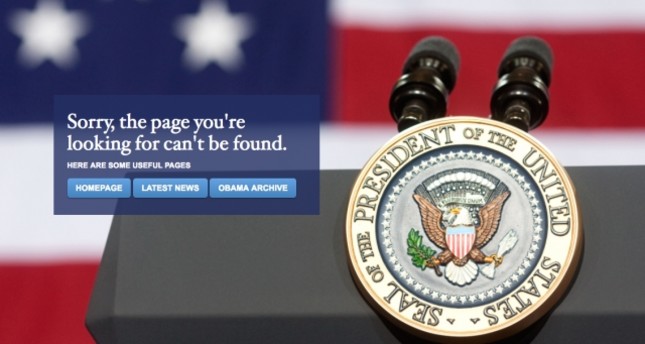
Donald Trump has landed another blow to the Hispanic community of the United States, the country’s largest minority group.
In addition to not picking any Hispanics for his cabinet – something that has not happened in almost 30 years – the new White House team has closed the Spanish-language accounts that the government had online. At the moment, it also lacks a direct interlocutor for Hispanic issues, which was the case under the Obama administration. The White House is now simply a White House.
At noon on Friday, Jan. 20, as the newly sworn Trump was giving his inaugural speech, the new White House was rapidly changing hands, analogically and digitally. President Obama’s Twitter account became Trump’s account; and the same was true for the White House website, which quickly posted a photo of the new president. But these were not the only changes. In addition to varying and substantially cutting ties with prominent issues on Obama’s website and replacing them with the “issues” of the new government – policies on climate change, Cuba and the nuclear pact with Iran were all removed – another button disappeared: “In Spanish.”
This link was connected to the Spanish-language version of the president’s website, which in addition to topics included on the home page in English, highlighted special interests of the Hispanic community, such as Obama’s executive orders to provide temporary legal status for hundreds of thousands of undocumented minors through the deferred action program known as DACA.*
During Obama’s two terms, the White House also maintained a Spanish-language blog on topics of specific interest to the Hispanic community, such as questions about immigration, the normalization of relations with Cuba and the economic crisis in Puerto Rico.
Despite the new president’s predilection for Twitter as a means of communication – in addition to his new official account, he continues to use his own private account – the Spanish version of the White House account has also ground to a halt. The last tweet in Spanish was on Jan. 13, via the account used by Obama.
Nor is there, for the moment, as there was during the Obama era, a press spokesman specifically dedicated to the Spanish-language media and issues of Hispanic interest.
During the long election campaign which demonized Latin American immigrants and put Mexico, the main country of origin for the U.S. Hispanic community, on the ropes, it became clear that Hispanics were not a priority for the new president. The only Spanish words used by then Republican candidate Trump were the derogatory “bad hombres,” which he used during the final presidential debate with Democrat Hillary Clinton in order to refer to the “illegal immigrants” he promised to deport. Trump also criticized one of his rivals, Jeb Bush, for speaking Spanish during the campaign.
“We have a country where, to assimilate, you have to speak English. We have to assimilate in order to have a country. I am not the first to say this. This is a country where we speak English, not Spanish,” he said during a Republican debate in September 2015.** A long year, and an electoral victory later, Trump does not appear to have changed his mind.
*Editor’s note: DACA stands for Deferred Action for Childhood Arrivals, an American immigration policy started by the Obama administration in June 2012 that allows certain undocumented immigrants to the United States who entered the country as minors to receive a renewable two-year period of deferred action from deportation and eligibility for a work permit.
**Editor’s note: Although accurately translated, this quoted remark could not be independently verified.

Leave a Reply
You must be logged in to post a comment.